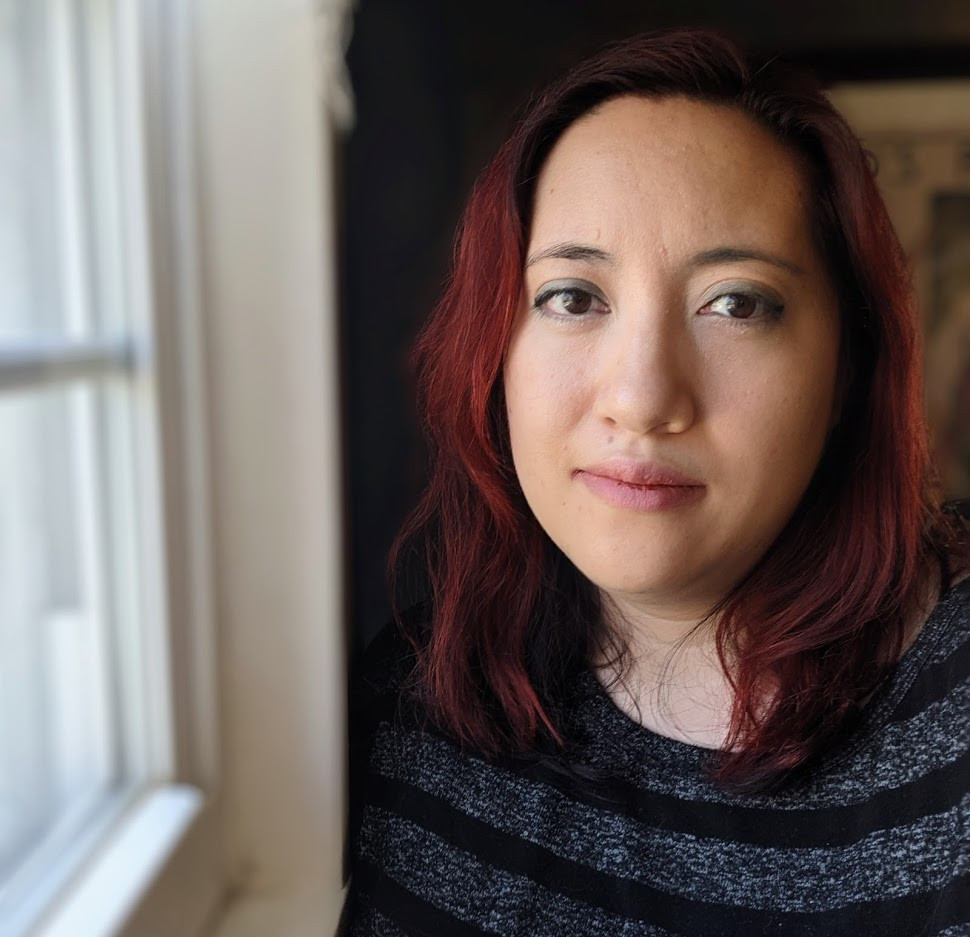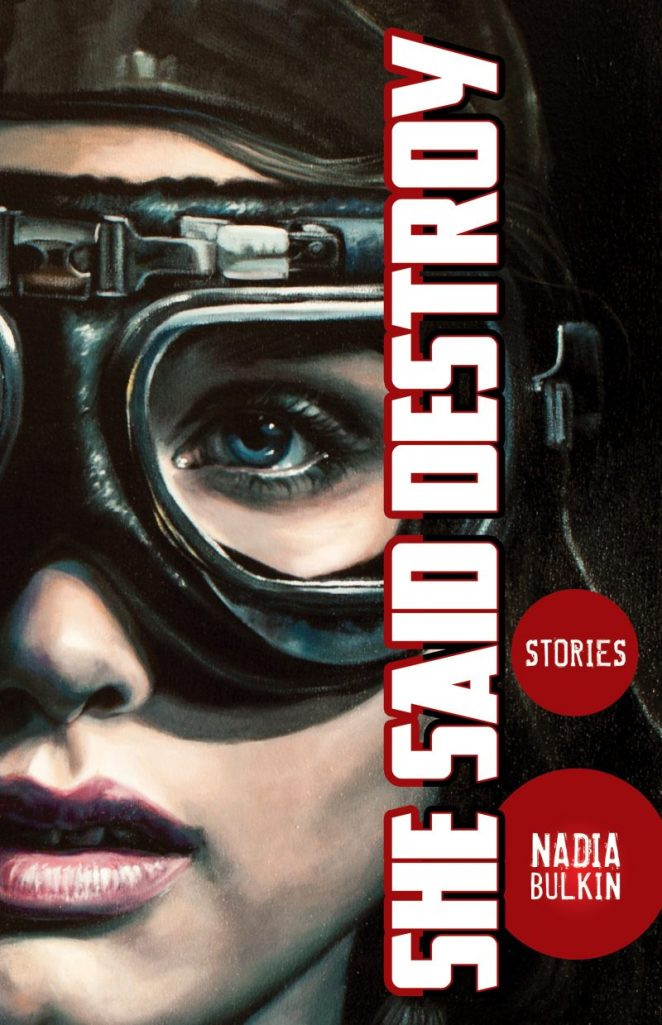Popular Reads
Top Results
Can't find what you're looking for?
View all search resultsPopular Reads
Top Results
Can't find what you're looking for?
View all search resultsWhy Indonesia is a gold mine for horror fans
Change text size
Gift Premium Articles
to Anyone
A
merican-Indonesian author Nadia Bulkin talks about her passion for horror fiction and how her Indonesian roots have influenced her writing.
Even as a child, Nadia Bulkin always had a penchant for telling stories. Her mother said she would dictate stories for her before Nadia had learned how to write.
“I was also one of those kids who really enjoyed being scared,” she recalls. “As I'm sure you know, Indonesia is a gold mine for horror fans, so I was always asking teachers to tell us ghost stories and watching Saturday morning horror movies on RCTI – and then dealing with my mother's frustration when I couldn't sleep.”
As the only child of an American mother and an Indonesian father, Nadia spent the first 10 years of her life in Jakarta before relocating to the US.
“My parents met in grad school,” she says. “My mom was an anthropology student who loved Indonesia, and my dad was a political science student who loved, or at least admired aspects of, the US. We lived in Indonesia because of my dad's scholarship obligations and how much easier it would be for him to get an academic job in Indonesia. My mom ended up an ABD [all but dissertation student], and she was trying to escape the Reagan years in the United States anyway.”
Unfortunately, Nadia lost her father in early 1998, when Indonesia was shaken by massive political turmoil, and then moved to Lincoln, Nebraska with her mother to be near family again in the US. To this day, she says, it saddens her that her dad did not live to see Soeharto’s fall.
Even though her environment changed completely, Nadia’s love for writing and horror stories remained. Currently residing in Washington, D.C., her short stories have been published in various magazines and anthologies. In August 2017, Nadia’s debut short story collection She Said Destroy was published by Word Horde.
Several of Nadia’s stories and She Said Destroy were nominated for Shirley Jackson Awards, established in 2008 for outstanding achievement in the literature of horror, the dark fantastic and psychological suspense, and whose namesake has always been one of Nadia’s favorite writers.
Unique: She Said Destroy, Nadias first short story collection, was published in 2017 (Courtesy of Word Horde) (Archive/Courtesy of Word Horde)
“Shirley Jackson was the first horror writer I read who wrote the kind of horror I wanted to write,” she says, adding Paul Bowles and Ottessa Moshfegh to her list of writers who have inspired her.
More recently, Nadia’s story “Truth Is Order and Order Is Truth” appeared in Black Cranes – Tales of Unquiet Women, a unique anthology featuring horror stories by Southeast Asian writers who dissect their experiences of “otherness.” Black Cranes was initially published in 2020 but was rereleased by Raw Dog Screaming Press last month.
“I actually wrote this story for an earlier anthology, She Walks in Shadows, which featured H.P. Lovecraft stories with a feminism lens,” Nadia explains. “When Lee Murray, one of the editors of Black Cranes, reached out to me about this project, we both decided that ‘Truth Is Order and Order is Truth’ would be a good fit to be reprinted.”
Nadia’s story revolves around the well-known Indonesian legend of Nyai Roro Kidul, the Queen of the South Sea in both Sundanese and Javanese mythology.
“The only time I ever saw my dad get freaked out about something supernatural was when my mother wore a forbidden color – turquoise – to a beach along the south coast of Java, where the Queen of the South Seas has dominion,” Nadia recalls, referring to the belief that it is Nyai Roro Kidul’s favorite color. Visitors are advised not to wear this particular color, for it may attract her attention and she could be tempted to snatch away the unlucky person and turn them into her slave.
“I love how much power she's given to this day,” Nadia says. “I also love the idea that sultans come and go, but she's a constant. I'd wanted to tell her story for a long time, but it only clicked when I gave it a Lovecraftian twist. I suspect her story also resonates with an international audience because it speaks to themes that many people can understand: power and territory and control.”
What may be evident now, but has taken a long time for Nadia to recognize, is how much her Indonesian upbringing, which she describes as Javanese and nominally Muslim, has informed her view of the paranormal and supernatural.
“I watch a lot of horror movies, I write ‘capsule’ reviews of them on Twitter and Instagram, and it's been great exploring modern Indonesian horror and comparing the themes and vibes to Western and East Asian horror,” she says. “What I've noticed is a tendency to view the spirit world as something that can be negotiated or bargained with rather than something that has to be fought or acquiesced to. I notice that the horror I write takes a very similar approach.”
Even though Nadia has not lived in Indonesia since she was a young girl, she has certainly not forgotten her roots.
“I focused pretty strongly on Indonesian politics and history during my undergraduate and graduate years, especially democratization and the legacy of colonialism,” she says. “I think I was mainly trying to process my own identity, which felt very fractured, and preserve a connection with my dead father. I think I have less need to ‘work through’ some of that baggage now, and feel more balanced within myself.”
In addition to horror stories, Nadia also writes non-fiction essays – on sports, mental health, and the psychology of horror. It’s a format she uses when she wants to talk directly about things that she can’t convey in fiction.
“Ironically, I think writing highly personal non-fiction has taught me the importance of writing emotional complexity into my fictional characters,” she says.
Nadia is not a full-time writer and has a regular day job, which sometimes makes it hard to find the time to put pen to paper, let alone be creative.
“Honestly, it's a lot of nights and weekends – and this means I also need to be careful to leave time for my decompression, so I don't burn out,” she acknowledges, adding that she uses any time spent traveling or commuting as “thinking time.”
“I need a lot of thinking time. I take notes on my phone to have ideas ready to work on when I get in front of my laptop,” Nadia describes her writing routine. “I say no to more than one social gathering per weekend. I don't work beyond my 9 to 5. And I'm patient with myself, because I'm doing the best I can.”
While it can be hard to maintain a healthy balance between working and writing – though these two are of course not mutually exclusive – Nadia wouldn’t dream about giving up her passion for crafting stories. She has even considered writing a full-length novel.
“I'd definitely like to publish longer works, if I can figure out how to write one that somebody wants to read,” Nadia says. “Short stories and novels are very different beasts, and the process of figuring out what kind of story to commit to novel form, as well as how to actually tell that story, has been bumpier than I would have liked. That said, I do love the economy and concision of the short story form. My favorite short stories are ‘all killer, no filler,’ and it's tough to maintain that level of intensity for an entire novel.”
Suppose Nadia could go back in time and talk to her younger self, the aspiring writer. In that case, she would tell her not to get too caught up in markers of external validation, which, she realizes, is a challenge for artists who have to compete and market themselves, often without reaping financial rewards.
“But the older I get, the truer it feels that one has to write for their own sake,” Nadia concludes. “So much of ‘the writer's life’ is not in your control, but that's the one thing that is.”
For more information, visit nadiabulkin.com











